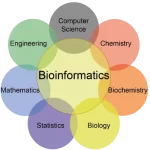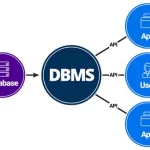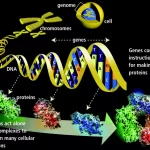
The Role of AI in Advancing Bioinformatics Research
September 4, 2023Empowering Bioinformatics Research: AI’s Revolutionary Impact on Genetic Analysis and Precision Medicine
Introduction
The integration of artificial intelligence (AI) into bioinformatics research is paving the way for transformative breakthroughs. AI’s potential to enhance the speed, accuracy, and efficiency of data analysis holds significant promise across various domains within bioinformatics. This essay delves into how AI is poised to reshape bioinformatics research and focuses on the domains that stand to benefit the most from its implementation.
AI’s Impact on Bioinformatics Research
Artificial intelligence has the capacity to revolutionize bioinformatics research by revolutionizing data analysis, making it faster, more precise, and highly efficient. Several domains within bioinformatics are particularly well-positioned to reap the benefits of AI implementation:
Protein Structure Prediction
The accurate prediction of protein structures is a cornerstone of understanding their functions and developing new therapeutic approaches. AI algorithms excel at analyzing extensive datasets to uncover patterns, enabling the accurate prediction of protein structures. This advancement accelerates drug discovery and the development of targeted therapies.
Gene Sequencing and Editing
AI’s influence on gene sequencing and editing is profound, particularly through the expedited sequencing process. Machine learning algorithms empower researchers by identifying genetic variations linked to specific diseases more efficiently. Additionally, AI streamlines the CRISPR/Cas9 gene editing system, facilitating more precise genomic alterations and contributing to personalized treatment strategies.
Drug Discovery and Repurposing
AI’s potential in drug discovery and repurposing is substantial. By analyzing large datasets, AI identifies novel drug targets and repurposes existing drugs for new therapeutic applications. This innovative approach expedites the identification of potential drug candidates, thereby speeding up the translation from laboratory discovery to clinical application.
Disease Diagnosis and Prognosis
The amalgamation of AI and bioinformatics holds immense promise in diagnosing diseases and predicting their progression. Through machine learning algorithms, intricate patterns within patient data, such as medical images and genetic information, can be detected. This development empowers healthcare professionals with timely and accurate diagnostic insights.
Precision Medicine
AI’s influence extends to precision medicine, where treatment approaches are tailored to the unique genetic makeup of each individual. By analyzing patient data using machine learning algorithms, AI identifies treatment strategies that are most effective for specific patients. This personalized approach enhances patient outcomes and fuels the advancement of medical care.
AI’s Enhancement of Gene Sequencing and Editing
AI is set to significantly improve gene sequencing and editing by expediting the analysis of extensive genetic data and uncovering genetic variations linked to diseases. Moreover, AI’s role in optimizing the design of CRISPR/Cas9 gene editing systems is instrumental in achieving precise genomic alterations.
Integrating AI with CRISPR/Cas9: Unlocking Benefits
The integration of AI with CRISPR/Cas9 gene editing holds several benefits:
Enhanced Precision and Efficiency
AI algorithms pinpoint optimal gene editing targets, enhancing the design of CRISPR/Cas9 systems. This heightened precision reduces off-target effects, thereby elevating the accuracy and efficiency of gene editing endeavors.
Accelerated Therapeutic Development
The amalgamation of AI expedites the identification of potential drug targets, accelerating the development of innovative therapies. AI’s adeptness in analyzing expansive datasets reveals genetic variations linked to diseases, guiding the pursuit of novel treatment avenues.
Pioneering Precision Medicine
AI empowers the creation of personalized treatment strategies. By assimilating patient data and identifying patterns, AI tailors treatments to individual genetic compositions, driving advancements in precision medicine.
Deepening Genome Understanding
AI’s analytical capabilities enhance our understanding of gene functions and interactions. The intricate patterns and relationships unveiled through AI analysis provide invaluable insights into the genome’s complexities.
AI’s Broad Applications
Beyond its impact in cancer therapeutics and vaccine design, AI-assisted CRISPR/Cas9 gene editing holds promise in diverse domains:
Transforming Agriculture
The collaboration between AI and CRISPR/Cas9 drives genetic engineering in crops, yielding varieties resistant to drought and boosting yields. AI’s insights from diverse datasets optimize gene editing strategies, advancing sustainable agriculture.
Empowering Gene Therapy
AI guides the development of gene therapies for a wide range of genetic disorders. By analyzing patient data, AI identifies potent gene editing targets and refines CRISPR/Cas9 systems, propelling gene therapy advancements.
Unveiling RNA Editing Potential
AI-driven CRISPR/Cas9 extends its reach to RNA editing. This transformative capability enables the modification of RNA molecules, presenting applications in cancer therapeutics and gene therapy, further expanding AI’s impact on bioinformatics research.
Conclusion
The convergence of AI and bioinformatics represents a promising era, characterized by expedited research and groundbreaking discoveries. AI’s entry into the domains of protein structure prediction, gene sequencing and editing, drug discovery, disease diagnosis, and precision medicine is set to bring about substantial advancements. As AI-assisted CRISPR/Cas9 gene editing extends its influence beyond cancer therapeutics and vaccine design, it redefines agriculture, gene therapy, and RNA editing. The quest to unravel biological complexities and enhance human well-being is significantly aided by AI’s capacity to amplify bioinformatics research capabilities.

















